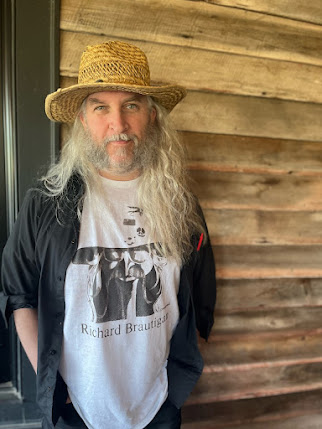But the sun, and the ships, and the
fish, and the waves., Conyer Clayton
Anvil Press, 2022
The second full-length poetry collection from Ottawa poet, editor, musician and gymnastics coach Conyer Clayton, following the 2021 Ottawa Book Award-winning We Shed Our Skin Like Dynamite (Toronto ON: Guernica Editions, 2020) is But the sun, and the ships, and the fish, and the waves. (Vancouver BC: Anvil Press, 2022), edited and produced through Stuart Ross’ A Feed Dog Book imprint. Composed as a suite of prose poems around childhood, loss, CPTSD, trauma and dream abstractions (some of which appeared earlier as an above/ground press chapbook), Clayton’s is a prose lyric of moments that float across narrative, accumulating as would a photo album into a larger story of memory and survival. As part of the acknowledgments, she writes that “This book, at its core, is about CPTSD.” She writes of shimmering absurdities and unresolved emotional scars in physical terms, as the poem “THE BREAK” ends, writing: “I can tell you wish I was in the water / too, sisters. I would warn you of the shifting / sandbar, but I have to find someone to watch / my pig first. I take my hand off for an instant / and squint against the sun to find you, and then / the pig is gone, my sisters are gone, they’re / somewhere beyond the break, they’re there, / they’re there, they must be. But the sun, and / the ships, and the fish, and the waves.” As she spoke of the project, then still in-progress, as part of an interview posted at Touch the Donkey:
These poems are all from a manuscript I am working on of prose poems based on my dreams. Most of the first drafts are spoken into a voice memo app on my phone when I wake up in the middle of the night or early morning, or scratched down in my notebook while I drink coffee on the couch. On some, I’ve added little bits to amplify certain themes and moments of significance, but I really try to stay true to the emotion and mood of each dream.
I have a longtime interest in the realities of alternate states of consciousness aside from our waking one, and this manuscript is my attempt to bring weight to what I feel is often dismissed — weird and seemingly random dreams. There is something to be learned from the places our Self travels when our waking intellect is shut down, and that is what I am leaning into in these poems.
This is a powerful book, one that knows full well how to push an effect best by pulling it back, offering a sheen and a subtlety that provide far more strength than had she worked more direct narratives. Throughout, the surrealism floats from light to dark, even within the same sentence or phrase, composing poems that blur at the edges of memory, repeated images and dangerous situations. She writes repeatedly of and around water, stories involving family members, anxiety, body horror and assault. “One night,” the poem “DEFICIENCY” begins, “as she struggles to sleep, she notices / small hearts dripping from her pores. She can / hear her pulse in every corner of the world. / Small hearts furrow her forehead and catch in / her hair. What can she do but to gather them?” The repetitions tether Clayton’s dream-poems together, offering a lineage, and even a rippling effect, connecting seemingly disparate poems together into a larger tableau. As well, through the waves of surreal memory, this is almost a book of water, whether as threat or salve, simultaneously washing away the pain and threatening to overwhelm her entirely. As the poem “THE MISSING PARTS OF ME” begins: “I stand in the middle of a pond fishing as my / father and older sister watch from shore. The / water is still and up to my waist. When I move, / the surface doesn’t ripple.”
GROWTH
My mac-and-cheese is cold. If I complain I’m never allowed to eat again. I get into a van with the other children. We’re driven across a windless landscape, skin-grey and hollow. The room we enter is full of beds. Blinds drawn. They tell us, The habits you make today will last for the rest of your lives. In the bathroom, I realize the mole on my neck has grown so large I can use it as a cape—fly to bed. As a blanket. It cannot be removed. I wouldn’t let them if they tried. Burrow in. Sleeping bag. The habits I build today will last for the rest of my life. I will always be this silent girl wrapped in her own skin.
Born in Ottawa, Canada’s glorious capital city, rob mclennan currently lives in Ottawa, where he is home full-time with the two wee girls he shares with Christine McNair. The author of more than thirty trade books of poetry, fiction and non-fiction, his most recent titles include the poetry collection the book of smaller (University of Calgary Press, 2022), and a suite of pandemic essays, essays in the face of uncertainties (Mansfield Press, 2022). He is thinking of cutting his hair (but don’t tell anyone), and is currently pushing to complete (or at least further) a novel. He spent the 2007-8 academic year in Edmonton as writer-in-residence at the University of Alberta, and regularly posts reviews, essays, interviews and other notices at robmclennan.blogspot.com

